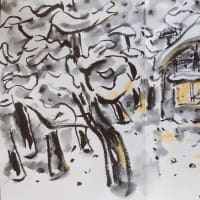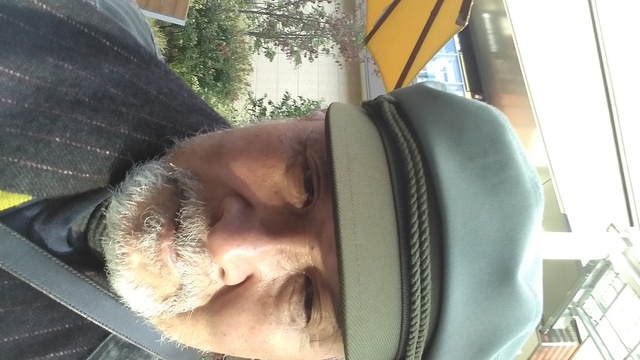朝日記240817 翻訳「ラッセルの逆説」Russell’s paradox (その3)
表紙へ 朝日記240817 翻訳「ラッセルの逆説」Russell's paradox
References
- ^ Russell, Bertrand, "Correspondence with Frege}. In Gottlob Frege Philosophical and Mathematical Correspondence. Translated by Hans Kaal., University of Chicago Press, Chicago, 1980.
- ^ Russell, Bertrand. The Principles of Mathematics. 2d. ed. Reprint, New York: W. W. Norton & Company, 1996. (First published in 1903.)
- ^ Irvine, A. D., H. Deutsch (2021). "Russell's Paradox". Stanford Encyclopedia of Philosophy (Spring 2021 Edition), E. N. Zalta (ed.), [1]
- ^ Bernhard Rang, Wolfgang Thomas: Zermelo's Discovery of the "Russell Paradox", Historia Mathematica 8.
- ^ Walter Purkert, Hans J. Ilgauds: Vita Mathematica - Georg Cantor, Birkhäuser, 1986, ISBN 3-764-31770-1
- ^ A.A. Fraenkel; Y. Bar-Hillel; A. Levy (1973). Foundations of Set Theory. Elsevier. pp. 156–157. ISBN 978-0-08-088705-0.
- ^ Irvine, Andrew David; Deutsch, Harry (2014). "Russell's Paradox". In Zalta, Edward N. (ed.). The Stanford Encyclopedia of Philosophy.
- ^ R. Bunn, Infinite Sets and Numbers (1967), pp.176–178. Ph.D dissertation, University of British Columbia
- ^ P. Maddy, "Believing the Axioms I" (1988). Association for Symbolic Logic.
- ^ José Ferreirós (2008). Labyrinth of Thought: A History of Set Theory and Its Role in Modern Mathematics (2nd ed.). Springer. § Zermelo's cumulative hierarchy pp. 374-378. ISBN 978-3-7643-8350-3.
- ^ The Autobiography of Bertrand Russell, George Allen and Unwin Ltd., 1971, page 147: "At the end of the Lent Term [1901], I went back to Fernhurst, where I set to work to write out the logical deduction of mathematics which afterwards became Principia Mathematica. I thought the work was nearly finished but in the month of May [emphasis added] I had an intellectual set-back […]. Cantor had a proof that there is no greatest number, and it seemed to me that the number of all the things in the world ought to be the greatest possible. Accordingly, I examined his proof with some minuteness, and endeavoured to apply it to the class of all the things there are. This led me to consider those classes which are not members of themselves, and to ask whether the class of such classes is or is not a member of itself. I found that either answer implies its contradictory".
- ^ Jump up to:a b Godehard Link (2004), One hundred years of Russell's paradox, Walter de Gruyter, p. 350, ISBN 978-3-11-017438-0, retrieved 2016-02-22
- ^ Russell 1920:136
- ^ Gottlob Frege, Michael Beaney (1997), The Frege reader, Wiley, p. 253, ISBN 978-0-631-19445-3, retrieved 2016-02-22. Also van Heijenoort 1967:124–125
- ^ Russell 1903:101
- ^ cf van Heijenoort's commentary before Frege's Letter to Russell in van Heijenoort 1964:126.
- ^ van Heijenoort's commentary, cf van Heijenoort 1967:126; Frege starts his analysis by this exceptionally honest comment : "Hardly anything more unfortunate can befall a scientific writer than to have one of the foundations of his edifice shaken after the work is finished. This was the position I was placed in by a letter of Mr Bertrand Russell, just when the printing of this volume was nearing its completion" (Appendix of Grundgesetze der Arithmetik, vol. II, in The Frege Reader, p. 279, translation by Michael Beaney
- ^ cf van Heijenoort's commentary, cf van Heijenoort 1967:126. The added text reads as follows: "Note. The second volume of Gg., which appeared too late to be noticed in the Appendix, contains an interesting discussion of the contradiction (pp. 253–265), suggesting that the solution is to be found by denying that two propositional functions that determine equal classes must be equivalent. As it seems very likely that this is the true solution, the reader is strongly recommended to examine Frege's argument on the point" (Russell 1903:522); The abbreviation Gg. stands for Frege's Grundgezetze der Arithmetik. Begriffsschriftlich abgeleitet. Vol. I. Jena, 1893. Vol. II. 1903.
- ^ Livio states that "While Frege did make some desperate attempts to remedy his axiom system, he was unsuccessful. The conclusion appeared to be disastrous ..." Livio 2009:188. But van Heijenoort in his commentary before Frege's (1902) Letter to Russell describes Frege's proposed "way out" in some detail—the matter has to do with the " 'transformation of the generalization of an equality into an equality of courses-of-values. For Frege a function is something incomplete, 'unsaturated'"; this seems to contradict the contemporary notion of a "function in extension"; see Frege's wording at page 128: "Incidentally, it seems to me that the expression 'a predicate is predicated of itself' is not exact. ...Therefore I would prefer to say that 'a concept is predicated of its own extension' [etc]". But he waffles at the end of his suggestion that a function-as-concept-in-extension can be written as predicated of its function. van Heijenoort cites Quine: "For a late and thorough study of Frege's "way out", see Quine 1956": "On Frege's way out", Mind 64, 145–159; reprinted in Quine 1955b: Appendix. Completeness of quantification theory. Loewenheim's theorem, enclosed as a pamphlet with part of the third printing (1955) of Quine 1950 and incorporated in the revised edition (1959), 253—260" (cf REFERENCES in van Heijenoort 1967:649)
- ^ Russell mentions this fact to Frege, cf van Heijenoort's commentary before Frege's (1902) Letter to Russell in van Heijenoort 1967:126
- ^ van Heijenoort's commentary before Zermelo (1908a) Investigations in the foundations of set theory I in van Heijenoort 1967:199
- ^ van Heijenoort 1967:190–191. In the section before this he objects strenuously to the notion of impredicativity as defined by Poincaré (and soon to be taken by Russell, too, in his 1908 Mathematical logic as based on the theory of types cf van Heijenoort 1967:150–182).
- ^ Ernst Zermelo (1908) A new proof of the possibility of a well-ordering in van Heijenoort 1967:183–198. Livio 2009:191 reports that Zermelo "discovered Russell's paradox independently as early as 1900"; Livio in turn cites Ewald 1996 and van Heijenoort 1967 (cf Livio 2009:268).
- ^ B. Rang and W. Thomas, "Zermelo's discovery of the 'Russell Paradox'", Historia Mathematica, v. 8 n. 1, 1981, pp. 15–22. doi:10.1016/0315-0860(81)90002-1
- ^ "barber paradox". Oxford Reference. Retrieved 2024-02-04.
- ^ "Play That Funky Music Was No. 1 40 Years Ago". Minnesota Public Radio. September 27, 2016. Retrieved January 30, 2022.
Sources
- Potter, Michael (15 January 2004), Set Theory and its Philosophy, Clarendon Press (Oxford University Press), ISBN 978-0-19-926973-0
- van Heijenoort, Jean (1967), From Frege to Gödel: A Source Book in Mathematical Logic, 1879–1931, (third printing 1976), Cambridge, Massachusetts: Harvard University Press, ISBN 0-674-32449-8
- Livio, Mario (6 January 2009), Is God a Mathematician?, New York: Simon & Schuster, ISBN 978-0-7432-9405-8
External links
- Kaplan, Jeffrey (2022). "Russell's Paradox - a simple explanation of a profound problem". YouTube. Retrieved 25 November 2023.
Wikiversity has learning resources about Russell's paradox
- "Russell's Paradox". Internet Encyclopedia of Philosophy.
- Irvine, Andrew David (2016). "Russell's Paradox". In Zalta, Edward N. (ed.). Stanford Encyclopedia of Philosophy.
- Weisstein, Eric W. "Russell's Antinomy". MathWorld.
- "Russell's Paradox". Cut-the-Knot. Retrieved 25 November 2023.
|
show Links to related articles |
- Bertrand Russell
- Eponymous paradoxes
- Paradoxes of naive set theory
- 1901 in science
- Self-referential paradoxes
- This page was last edited on 20 July 2024, at 22:14 (UTC).
- Text is available under the Creative Commons Attribution-ShareAlike License 4.0; additional terms may apply. By using this site, you agree to the Terms of Use and Privacy Policy. Wikipedia® is a registered trademark of the Wikimedia Foundation, Inc., a non-profit organization.
表紙へ 朝日記240817 翻訳「ラッセルの逆説」Russell's paradox





















![朝日記241011b [アーバン幻想]絵画 Stage2 Yassie exhibition”Urban Fantastics”](https://blogimg.goo.ne.jp/image/upload/f_auto,q_auto,t_image_square_m/v1/user_image/4f/fe/4b054934e6043d9004064c82a8fc6da6.jpg)
![朝日記241011b [アーバン幻想]絵画 Stage2 Yassie exhibition”Urban Fantastics”](https://blogimg.goo.ne.jp/image/upload/f_auto,q_auto,t_image_square_m/v1/user_image/3e/2a/6ed2bb002077564da4e8d461706d4af7.jpg)






※コメント投稿者のブログIDはブログ作成者のみに通知されます